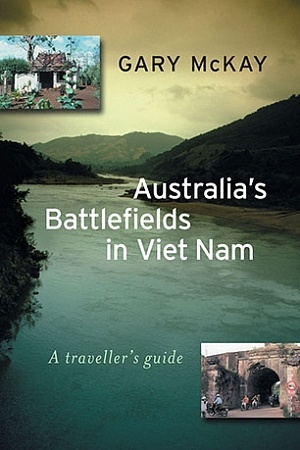Việt Nam: A History from earliest times to the present
Oxford University Press, $41.95 hb, 637 pp, 9780195160765
Việt Nam: A History from earliest times to the present by Ben Kiernan
‘Vietnam Vietnam Vietnam, we’ve all been there.’ The American reporter Michael Herr thus concluded his celebrated work Dispatches (1977), confident that his readers understood what he meant, even if most of them had never set foot in the country. The very word possessed an almost incantatory power. In the United States, as in Australia, opposition to the military intervention and its cross-fertilisation with other forms of dissent dominated the historical period. ‘Vietnam’ became an all-consuming cause célèbre as much as an actual geographical entity, ‘a war not a country’, in the revealing phrase used by Herr himself. Indicatively, Dispatches said plenty about the war’s traumatic effect on Americans, but very little about the Vietnamese themselves.
The vicariousness of ‘Vietnam’ is directly addressed by the Yale-based Australian scholar of Southeast Asia, Ben Kiernan, in the opening chapter of this major new history of the country. The use of diacritics in work’s title, Việt Nam, signals that Kiernan intends his work to be an act of precision and of reclamation. Multi-regional and polyethnic, Vietnam ‘has always been much more than a war’, he writes. A long, slender land of rivers framed by the Red River Delta in the north and that of the Mekong to the south, and bordered by the South China Sea, it is apprehended as a real landscape populated by real, if diverse, people. The place we now call Vietnam is ‘a land shared and contested by many peoples and cultures’ over three millennia, ‘a series of homelands that have become a shared territory’. Just as the country cannot be reduced to a single twentieth-century war, nor can its history be simply distilled into one national narrative.
Continue reading for only $10 per month. Subscribe and gain full access to Australian Book Review. Already a subscriber? Sign in. If you need assistance, feel free to contact us.















Leave a comment
If you are an ABR subscriber, you will need to sign in to post a comment.
If you have forgotten your sign in details, or if you receive an error message when trying to submit your comment, please email your comment (and the name of the article to which it relates) to ABR Comments. We will review your comment and, subject to approval, we will post it under your name.
Please note that all comments must be approved by ABR and comply with our Terms & Conditions.